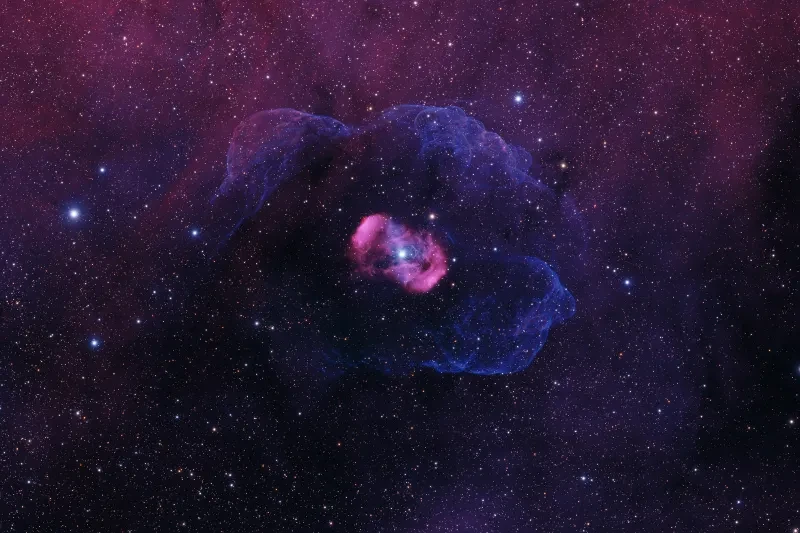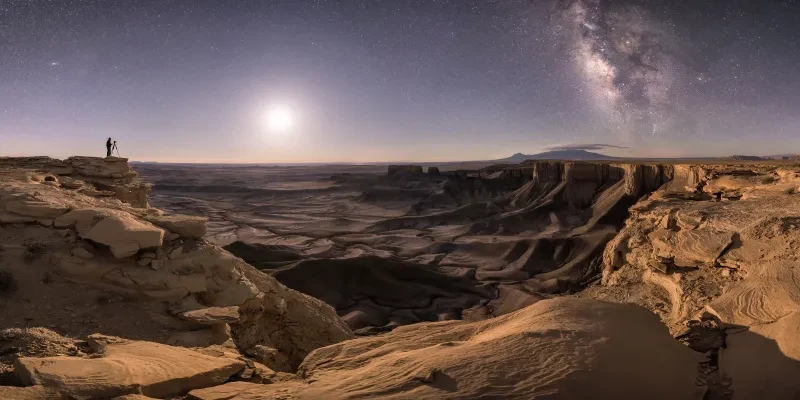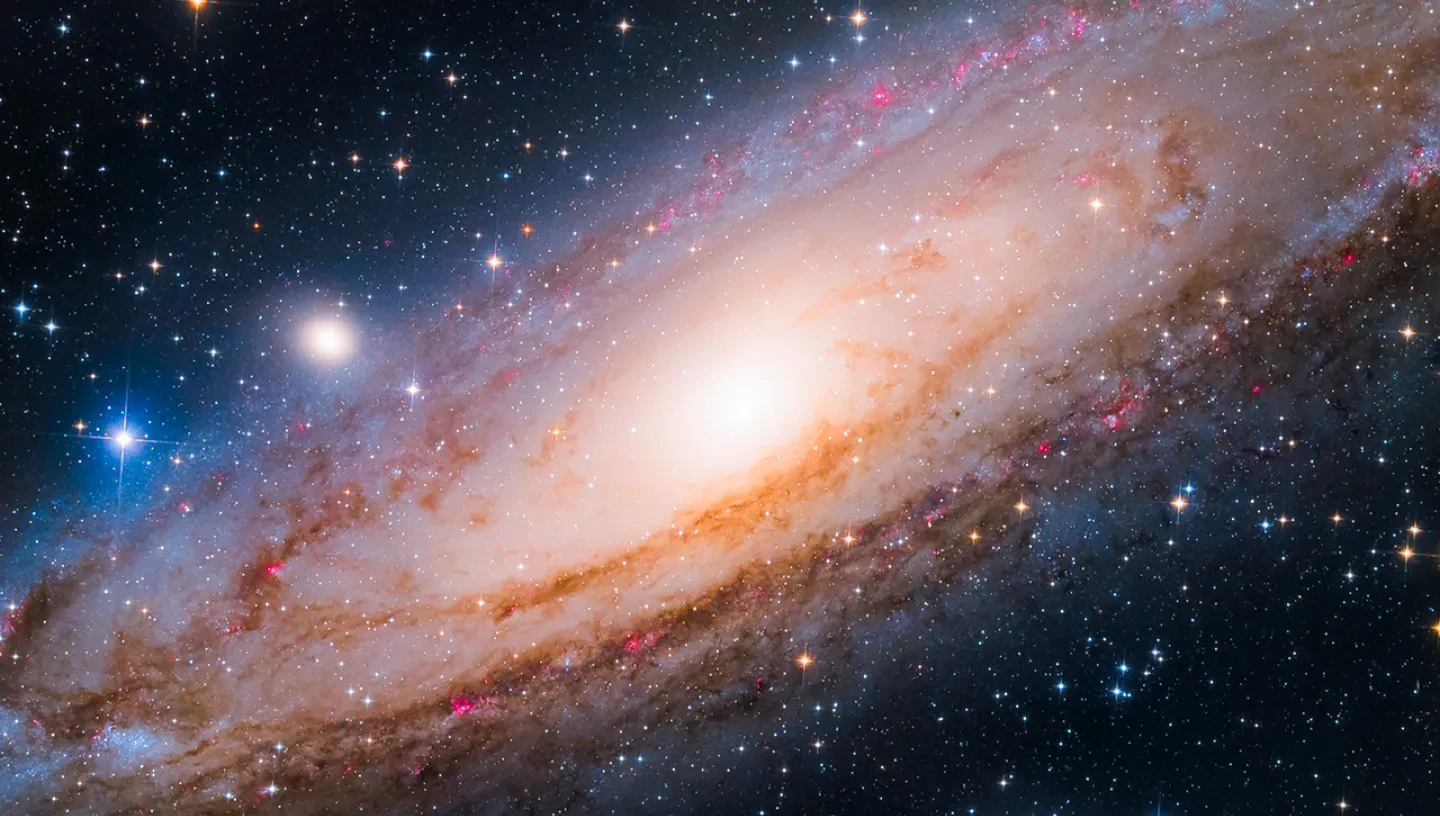
The winner of Astronomy Photographer of the Year 2022 has been revealed.
The remarkable winning images were announced during a virtual awards ceremony on Thursday 15 September 2022.
As well as the overall winner, there were 11 different category prizes up for grabs, from glittering galaxies and shimmering aurorae to out-of-this-world skyscapes.
Never miss a shooting star
Sign up to our space newsletter for exclusive astronomy news, guides and events, and be ready to enter next year's competition
The winning photographer
Gerald Rhemann has been named the overall winner of Astronomy Photographer of the Year 2022 for his photograph Disconnection Event.
The remarkable image shows Comet C/2021 A1, commonly known as Comet Leonard, which was first discovered in January 2021 by astronomer Greg Leonard. For many astrophotographers this comet was the highlight of the year, with almost a quarter of submissions to the Planets, Comets and Asteroids category featuring the icy visitor.
However, it was Gerald Rhemann's photograph, taken on Christmas Day, that really blew the judges away.
Gerald's image captured a dramatic moment in the life of a comet: a disconnection event. This happens when a piece of the comet's tail becomes separated after being hit by high velocity solar particles.
"A piece of Comet Leonard’s tail was pinched off and carried away by the solar wind," Gerald recalls. "I was very lucky that the weather at Tivoli Farm, Namibia, was excellent when I opened the roof of the observatory. I recognized that the comet’s tail looked dramatic in the first image I took, so decided to extend the field of view with a second image and that’s where the disconnection happened."
This award-winning photograph is the result.
"Astronomy, myth and art come together beautifully in this shot," says competition judge Imad Ahmed. "It holds great value to scientists, as it elegantly captures a disconnection event. Yet this photograph, which was taken on Christmas Day, seems to tell an otherworldly story too – it could be the Star of Bethlehem, an angel or a fairy soaring through the night sky.”
See the full Planets, Comets and Asteroids shortlist here, and find out more about all the individual category winners below.
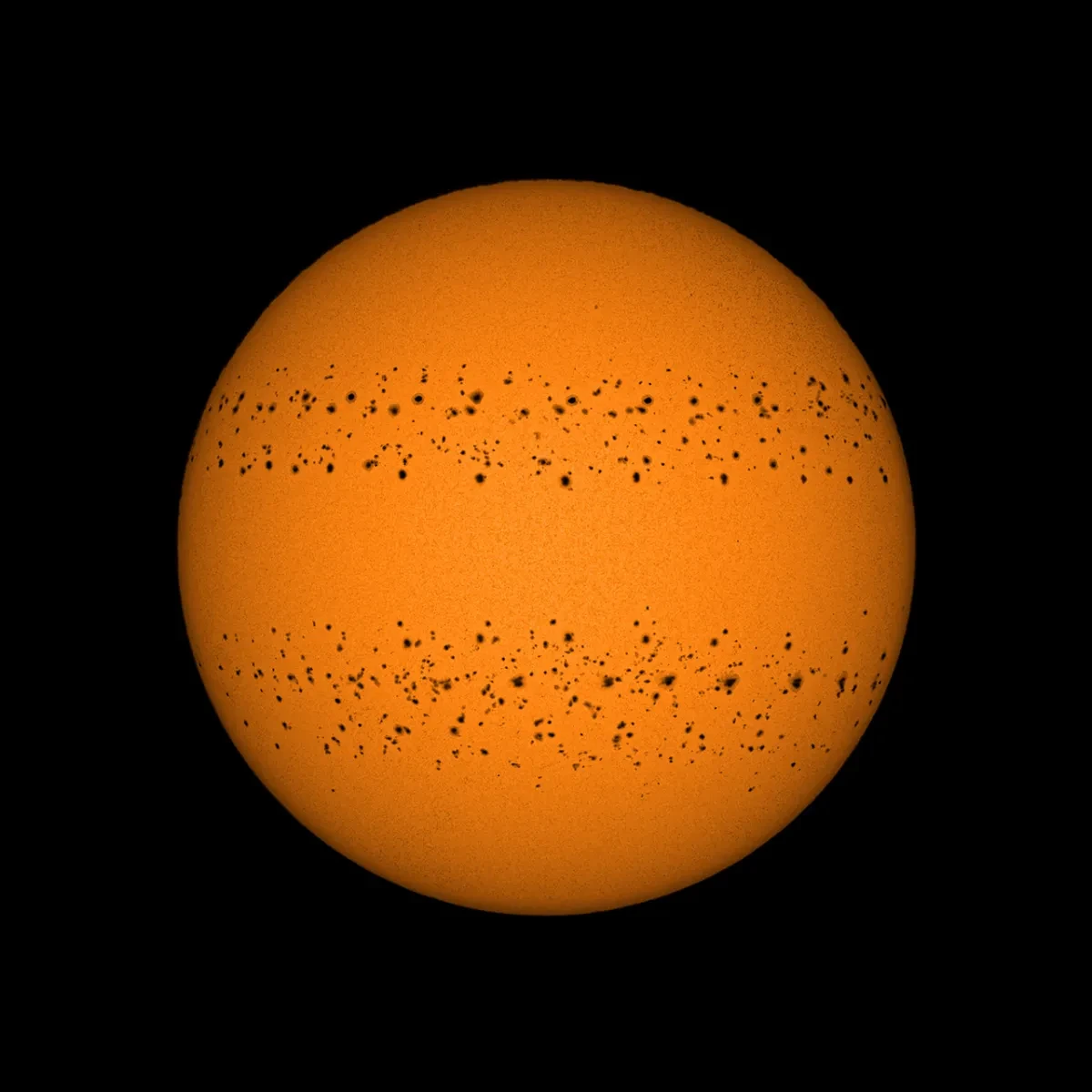
Our Sun winner
A Year in the Sun by Soumyadeep Mukherjee
"The commitment and diligence (not to mention luck) needed to image the Sun every day for a year is a feat within itself. But, more than just a matter of hard work, this photographer has achieved a fascinating and unique look at the progression of sunspot bands across its disc."
- Steve Marsh, competition judge
See the full Our Sun shortlist
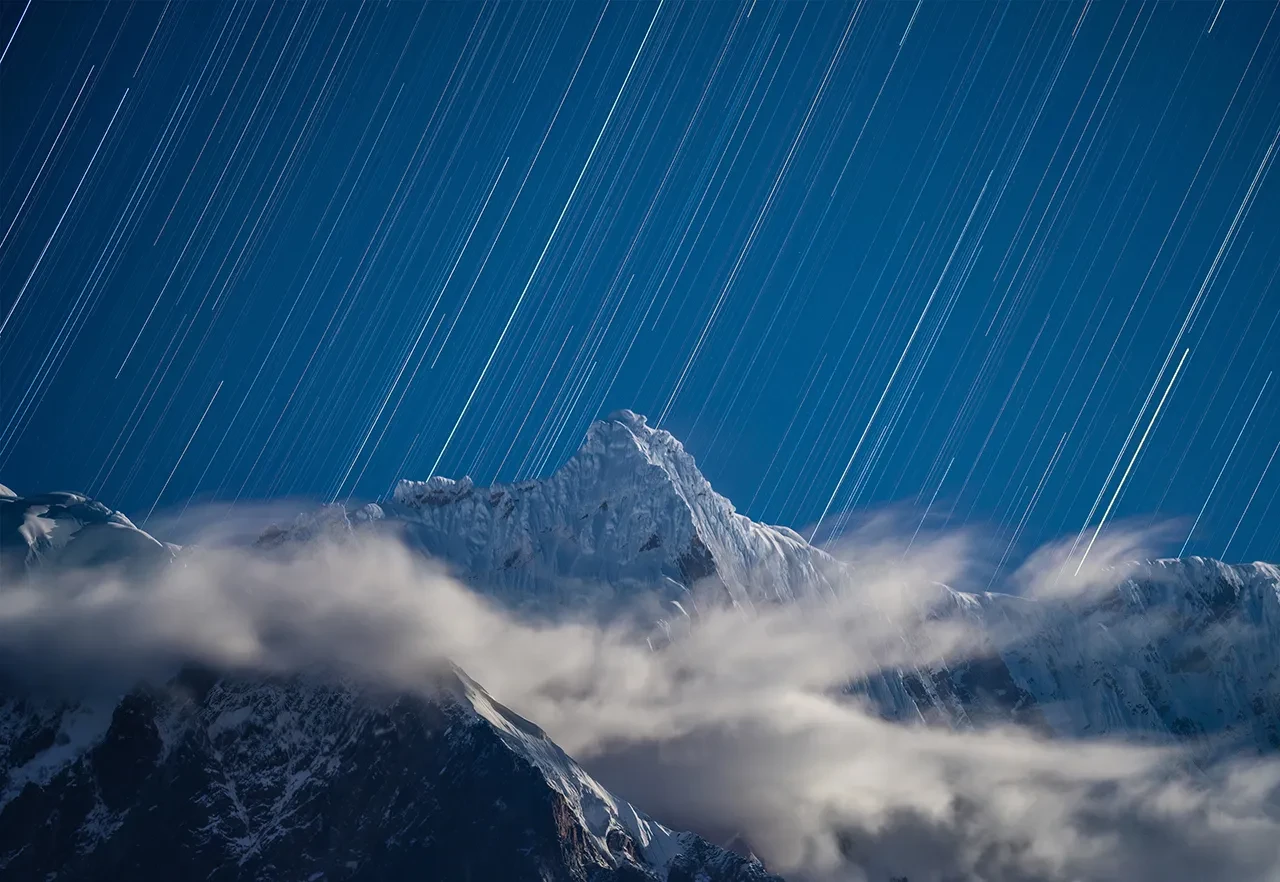
Skyscapes winner
Stabbing into the Stars by Zihui Hu
"This is a beautiful image of star trails set against snow-capped mountains, which appear serene in their stillness, as the stars seemingly continue on their journey in the background."
- Melissa Brobby, competition judge
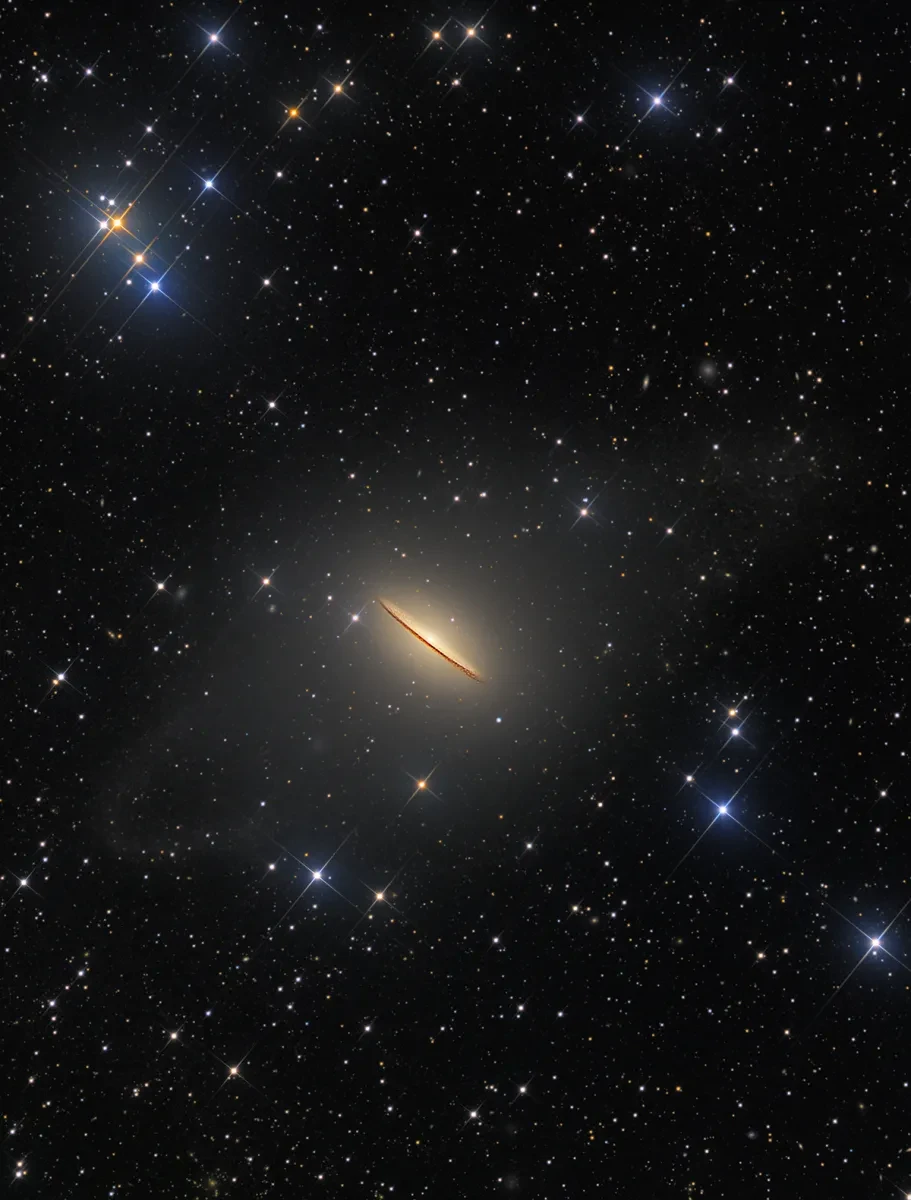
Galaxies winner
Majestic Sombrero Galaxy by Utkarsh Mishra, Michael Petrasko and Muir Evenden
"The Sombrero Galaxy is home to an estimated 100 billion stars. It has a distinctive but not uncommon shape, which resembles a flat disc, like the brim of a sombrero hat."
"While many galaxies take this shape, similar galaxies can have completely different appearances, looking like anything from ovals to straight lines. It all depends on our perspective here on Earth. It is our particular location relative to the Sombrero Galaxy that means we see it almost edge-on."
- Anna Gammon-Ross, Royal Observatory astronomer
See the full Galaxies shortlist
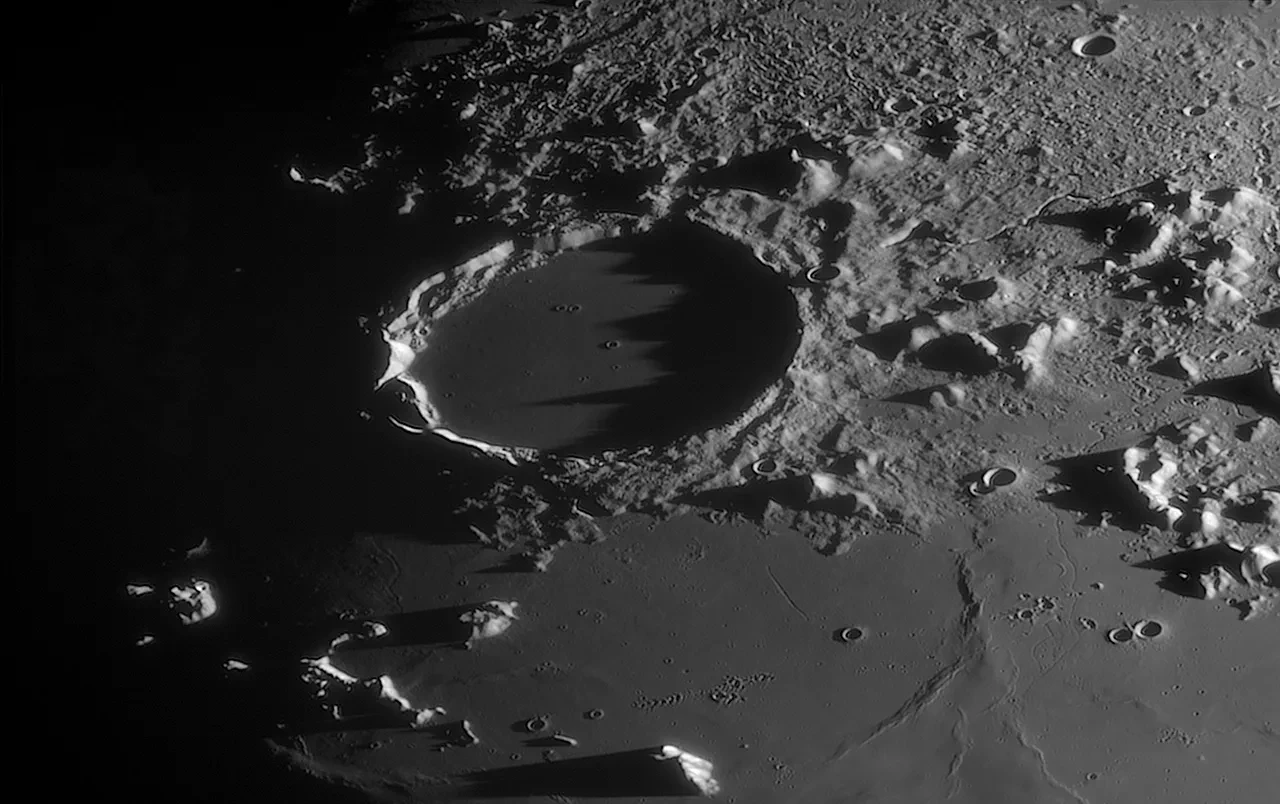
Our Moon winner
Shadow Profile of Plato's East Rim by Martin Lewis
"The clarity, sharpness and contrast in this picture of Plato’s rim is very impressive. I enjoyed how the details from the surface of the Moon have been brought so close to us. It’s almost difficult to believe that the photographer has captured this picture whilst standing here on Earth."
- Imad Ahmed, competition judge
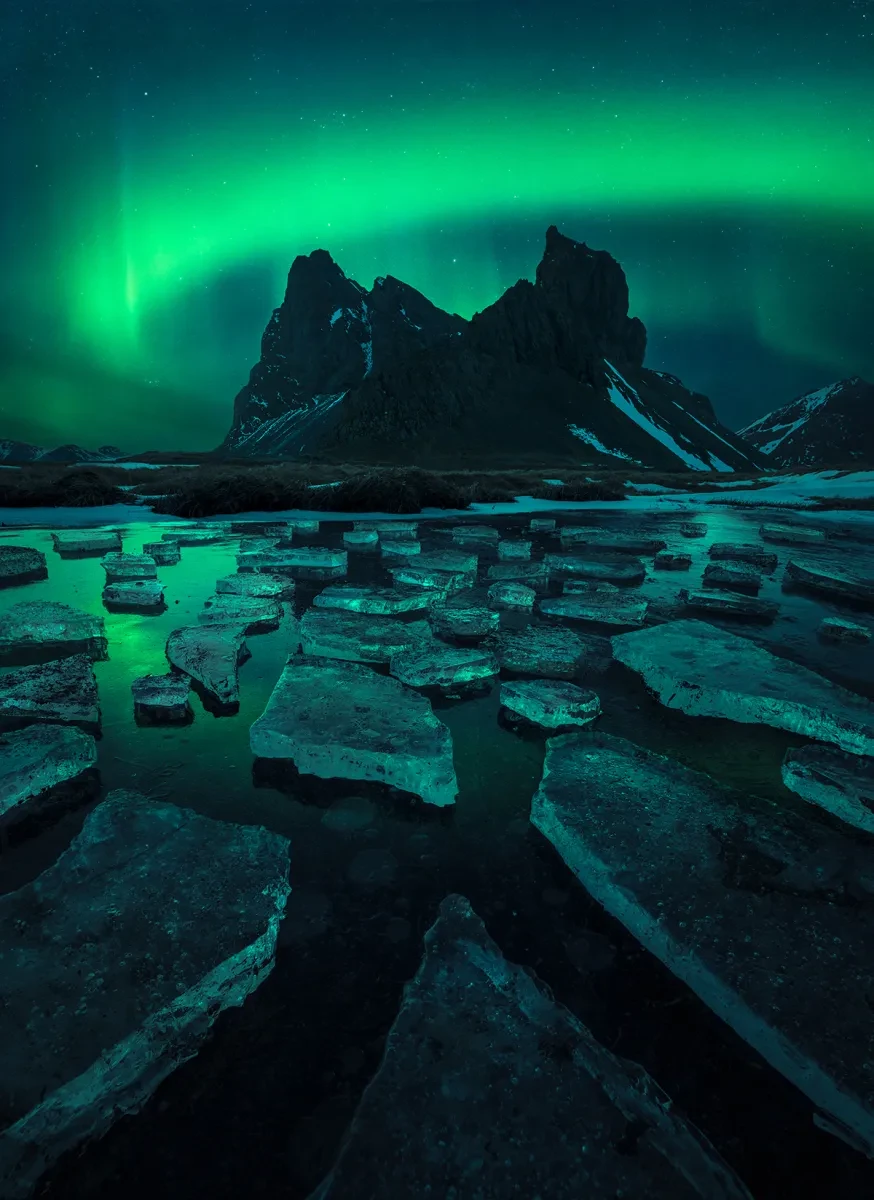
Aurorae winner
In the Embrace of a Green Lady by Filip Hrebenda
"I love this photo because it really sums up aurorae for me: the green ‘swoosh’ reflected in the icy lake, the clarity of the edges of the ice blocks and the looming shadow of the mountain. Fantastic!"
- Sheila Kanani, competition judge
See the full Aurorae shortlist
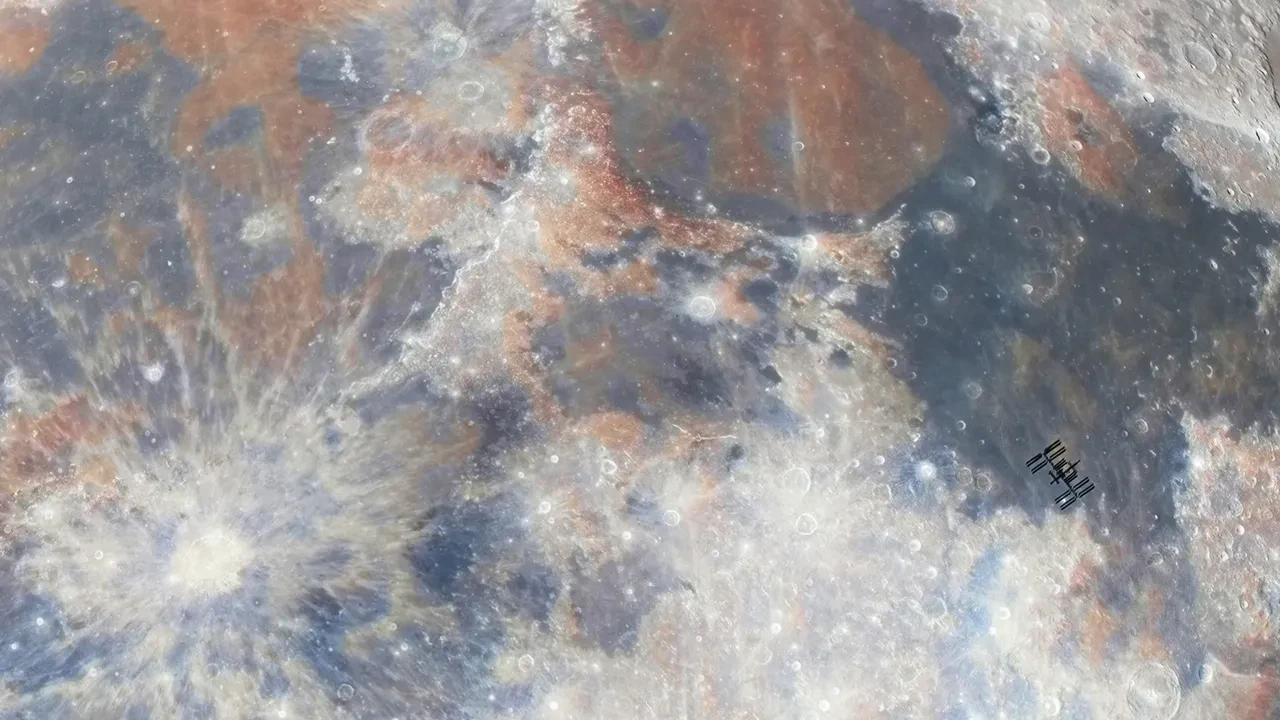
People and Space winner
The International Space Station Transiting Tranquility Base by Andrew McCarthy
"Technical brilliance aside, this image is full of drama. The space station hurtling across the field of view draws the eye around the image, while the contrast between it and the Moon pulls the eye from monochrome foreground to colourful background. Personally, I think it also evokes the Apollo programme directly: classic imagery of the lunar landers descending from the command modules to touch down on our nearest cosmic neighbour."
- Ed Bloomer, Royal Observatory astronomer
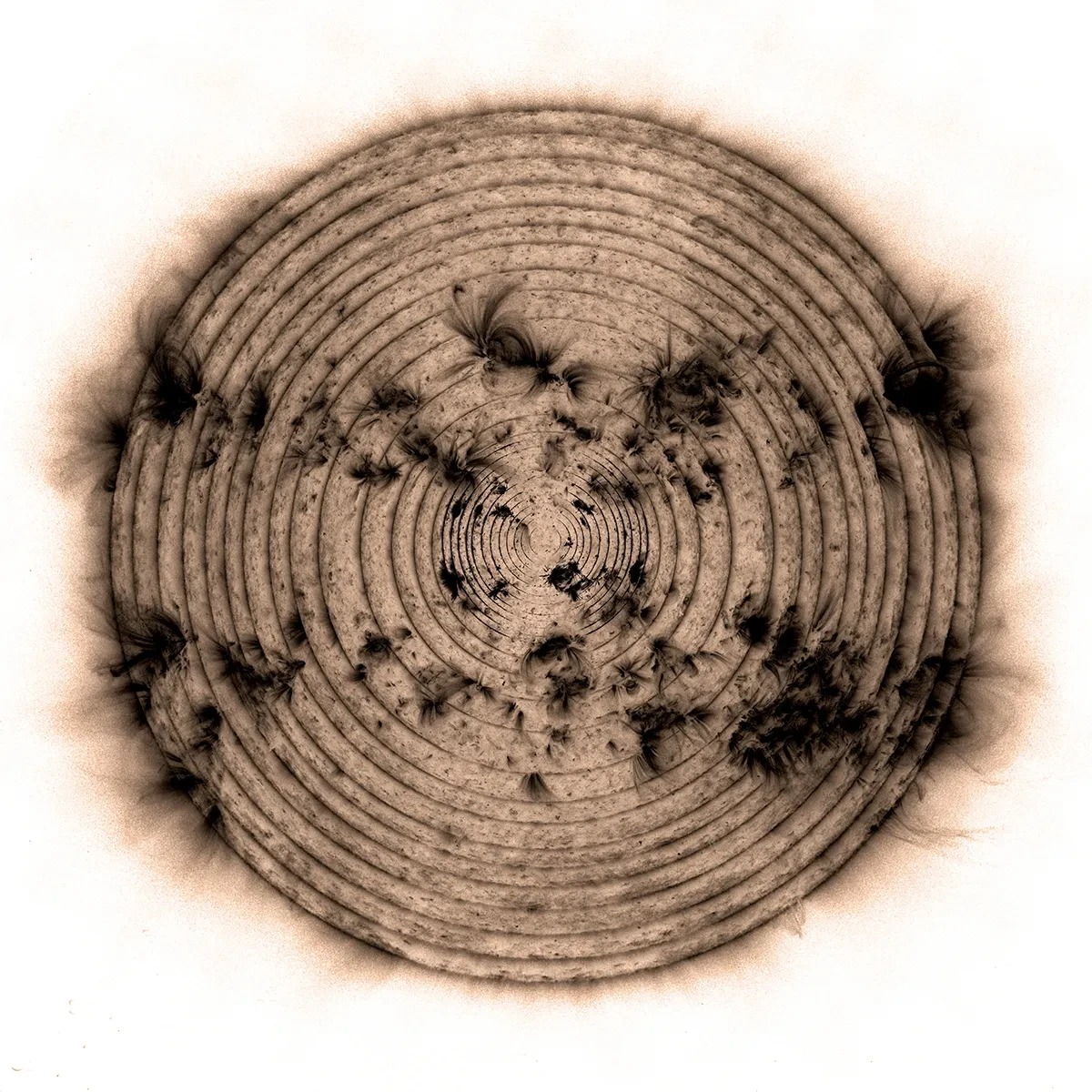
The Annie Maunder Prize for Image Innovation
Solar Tree by Pauline Woolley
"Dendrochronology – the scientific method of calculating dates based on tree rings – is used by art historians and conservators to date wood panel paintings, but here the technology has been utilized to create an unusual and beautiful composition. This is an innovative photograph that immediately astonished all the judges."
- Hannah Lyons, competition judge
See the full Image Innovation shortlist
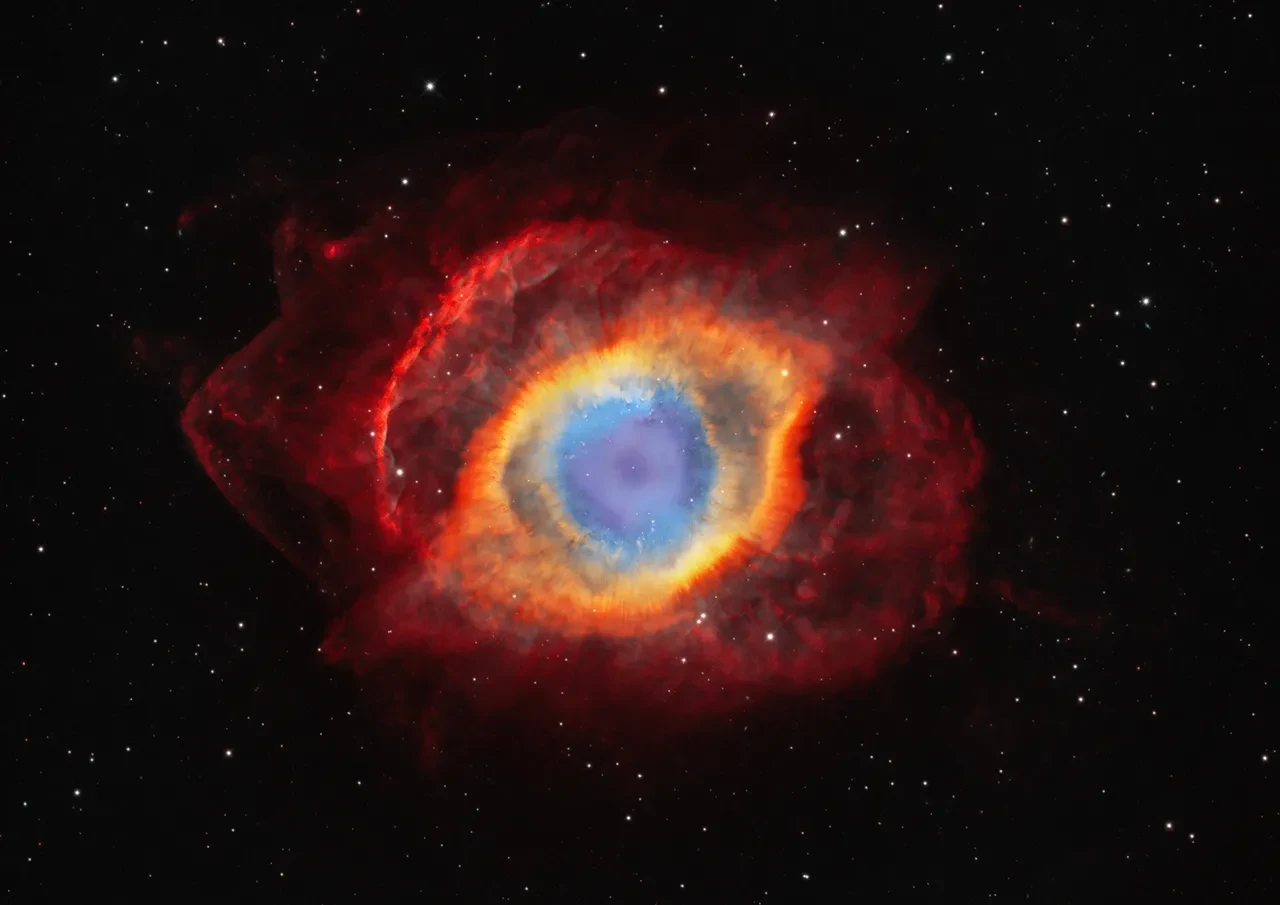
Stars and Nebulae winner
The Eye of God by Weitang Liang
"There is real depth to this photo. I could stare into that ‘eye’ forever! The colours really bring out features that are not normally witnessed."
- Steve Marsh, competition judge
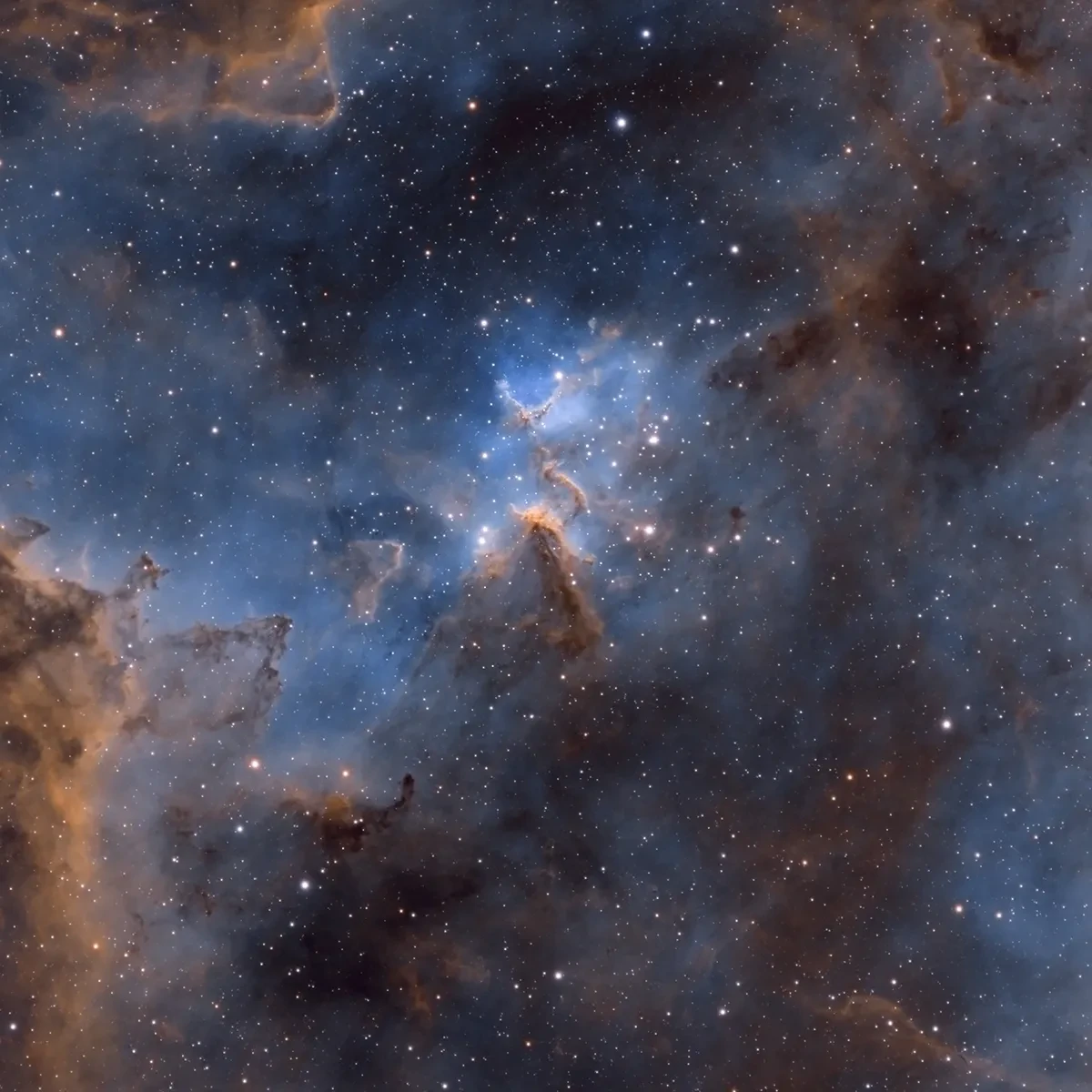
The Sir Patrick Moore Prize for Best Newcomer
The Heart of the Heart - Melotte 15 by Hannah Rochford
"This is a wonderfully balanced image: lots of softness without being fuzzy, and lots of colour without being harsh. It is incredible to capture the fine details (for anyone, let alone a newcomer!), and is framed well to draw the viewer in. It's a real achievement. Absolutely beautiful."
- Ed Bloomer, competition judge
See the full Best Newcomer shortlist
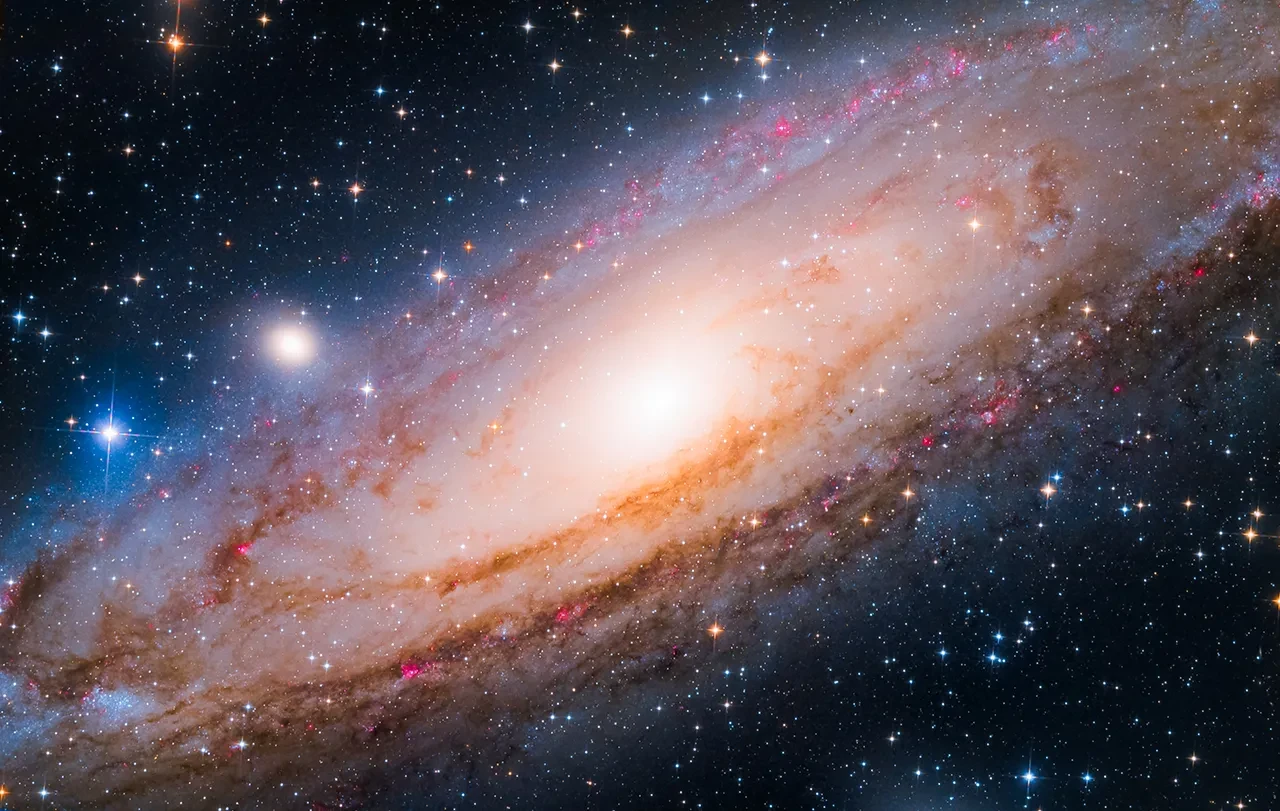
Young competition winner
Andromeda Galaxy: The Neighbour by Yang Hanwen and Zhou Zezhen
"A very natural-looking rendering of the Andromeda Galaxy. There is no sign of intensity masking, false colours, oversharpening. It is the best example of precise postprocessing, using the beautifully composed raw data of a cheap, but finely tuned, instrument with a nice field of view. It’s a superb capture by a young astrophotographer, who also demonstrates their exceptional talent in processing a deep-sky photo."
- László Francsics, competition judge
Our partners




